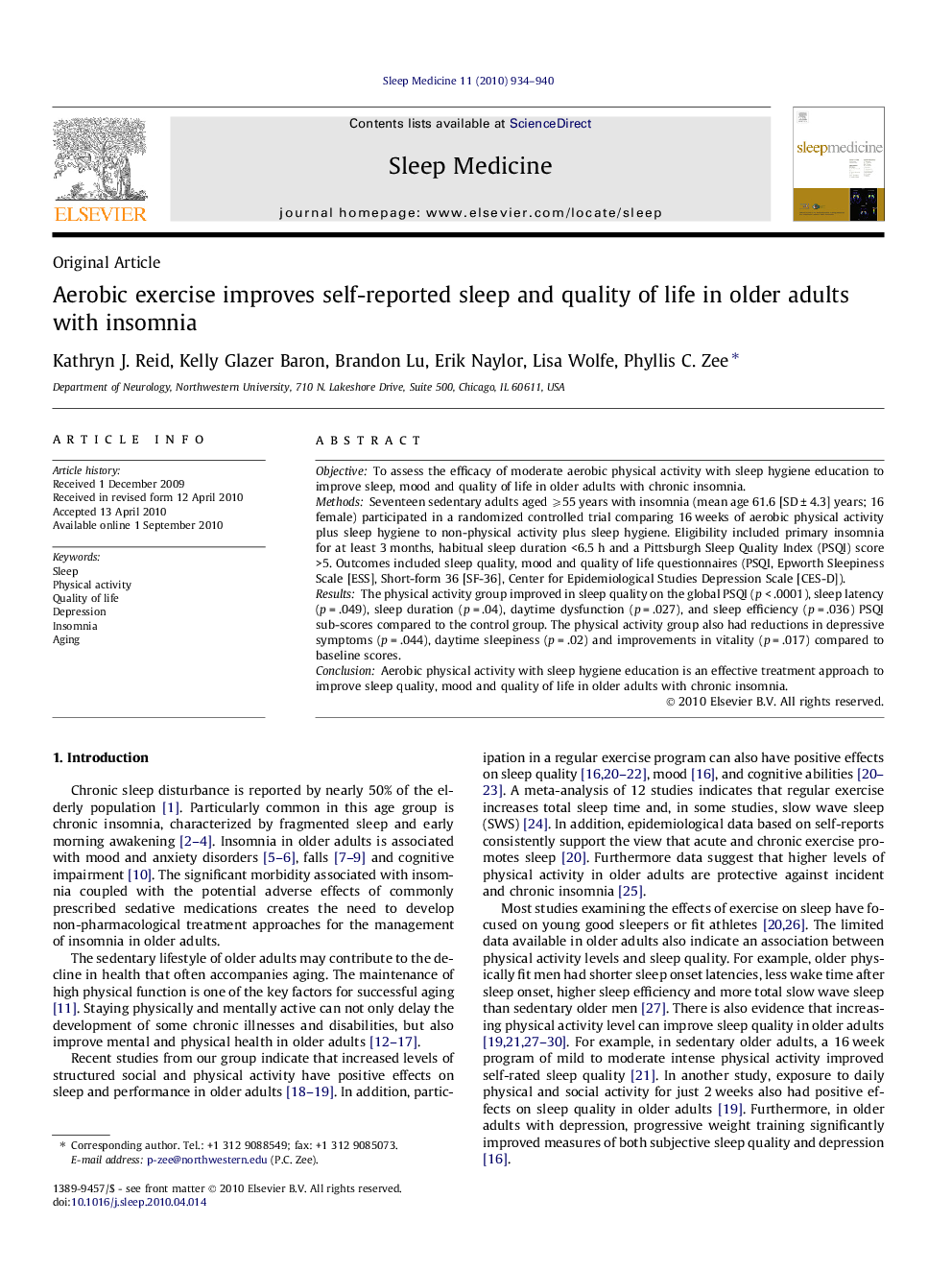| Article ID | Journal | Published Year | Pages | File Type |
|---|---|---|---|---|
| 3177223 | Sleep Medicine | 2010 | 7 Pages |
ObjectiveTo assess the efficacy of moderate aerobic physical activity with sleep hygiene education to improve sleep, mood and quality of life in older adults with chronic insomnia.MethodsSeventeen sedentary adults aged ⩾55 years with insomnia (mean age 61.6 [SD ± 4.3] years; 16 female) participated in a randomized controlled trial comparing 16 weeks of aerobic physical activity plus sleep hygiene to non-physical activity plus sleep hygiene. Eligibility included primary insomnia for at least 3 months, habitual sleep duration <6.5 h and a Pittsburgh Sleep Quality Index (PSQI) score >5. Outcomes included sleep quality, mood and quality of life questionnaires (PSQI, Epworth Sleepiness Scale [ESS], Short-form 36 [SF-36], Center for Epidemiological Studies Depression Scale [CES-D]).ResultsThe physical activity group improved in sleep quality on the global PSQI (p < .0001), sleep latency (p = .049), sleep duration (p = .04), daytime dysfunction (p = .027), and sleep efficiency (p = .036) PSQI sub-scores compared to the control group. The physical activity group also had reductions in depressive symptoms (p = .044), daytime sleepiness (p = .02) and improvements in vitality (p = .017) compared to baseline scores.ConclusionAerobic physical activity with sleep hygiene education is an effective treatment approach to improve sleep quality, mood and quality of life in older adults with chronic insomnia.
